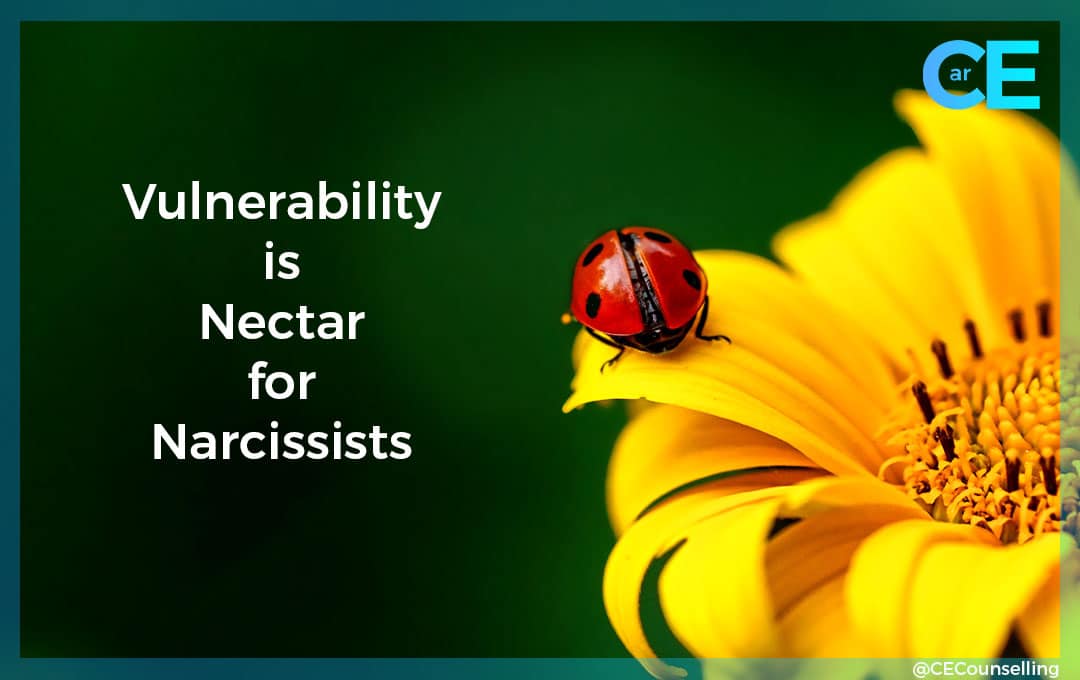Vulnerability is Nectar for Narcissists
Unveiling the Manipulative Dance
Vulnerability, often regarded as a human quality that fosters connection and empathy, can paradoxically become a breeding ground for narcissistic individuals to exploit and manipulate. The interplay between vulnerability and narcissism is a complex dance, where the vulnerable often find themselves unwittingly ensnared in the web of self-serving individuals. In this article, we explore how vulnerability acts as nectar for narcissists, drawing them in with the promise of empathy only to be used as pawns in their self-centred games.
What is Vulnerability?
Vulnerability is an inherent part of the human experience, which signifys openness, emotional transparency and the willingness to expose oneself to the potential for harm or rejection. It is a crucial aspect of genuine human connections, allowing individuals to forge bonds based on shared experiences, emotions and trust. However, when vulnerability encounters a narcissistic force, the dynamics take a dark turn.
The Narcissistic Persona
Narcissists, characterised by an inflated sense of self-importance, a constant need for admiration and a lack of empathy, often seek out vulnerabilities in others to serve their own agenda which is why vulnerability is nectar for narcissist. Their charismatic and charming facade can be particularly alluring to those who are susceptible to emotional openness, creating a perfect storm for manipulation.
The Manipulative Dance
Narcissists are adept at identifying and exploiting vulnerabilities in others. They employ a variety of tactics to gain control and feed their insatiable need for attention and validation. One such tactic is the love bombing phase, where the narcissist showers their target with excessive praise, attention and affection. This creates a false sense of security and emotional connection, leading the vulnerable individual to lower their guard.
As the relationship progresses, the narcissist gradually exploits the vulnerabilities they have identified. They may undermine the target’s self-esteem, gaslight them into questioning their reality, or exploit their emotional wounds for personal gain. The vulnerable individual, initially drawn in by the apparent empathy and understanding, becomes entangled in a toxic web of manipulation.
The Cycle of Exploitation
Narcissists thrive on the emotional energy of their victims. The more vulnerable an individual is, the more susceptible they become to the narcissist’s tactics. This cycle of exploitation often leads to a power dynamic where the narcissist maintains control while the vulnerable party is left emotionally drained and confused and in many cases isolated from their friends and families.
Breaking Free
Recognising the toxic dance between vulnerability and narcissism is the first step toward breaking free from the manipulative grip. Building resilience, setting boundaries, and cultivating self-awareness are essential tools for individuals to protect themselves from falling prey to narcissistic manipulation.
Conclusion
While vulnerability is a genuine and valuable aspect of the human experience, it is crucial to be aware of the potential dangers when it encounters narcissistic individuals. Understanding the manipulative dance that ensues allows individuals to navigate relationships more cautiously and protect themselves from falling victim to the insidious tactics of narcissists. By fostering a culture of awareness and resilience, society can mitigate the impact of narcissistic exploitation and promote healthier, more authentic connections.
For individual support I am here for you. Contact me to book an initial session and I will support you.
This blog was collated from internet sources and your local counsellor in Fleet, Caroline at Caroline Ellison Counselling – this is my experience and these are my opinions. Carpe Diem.


